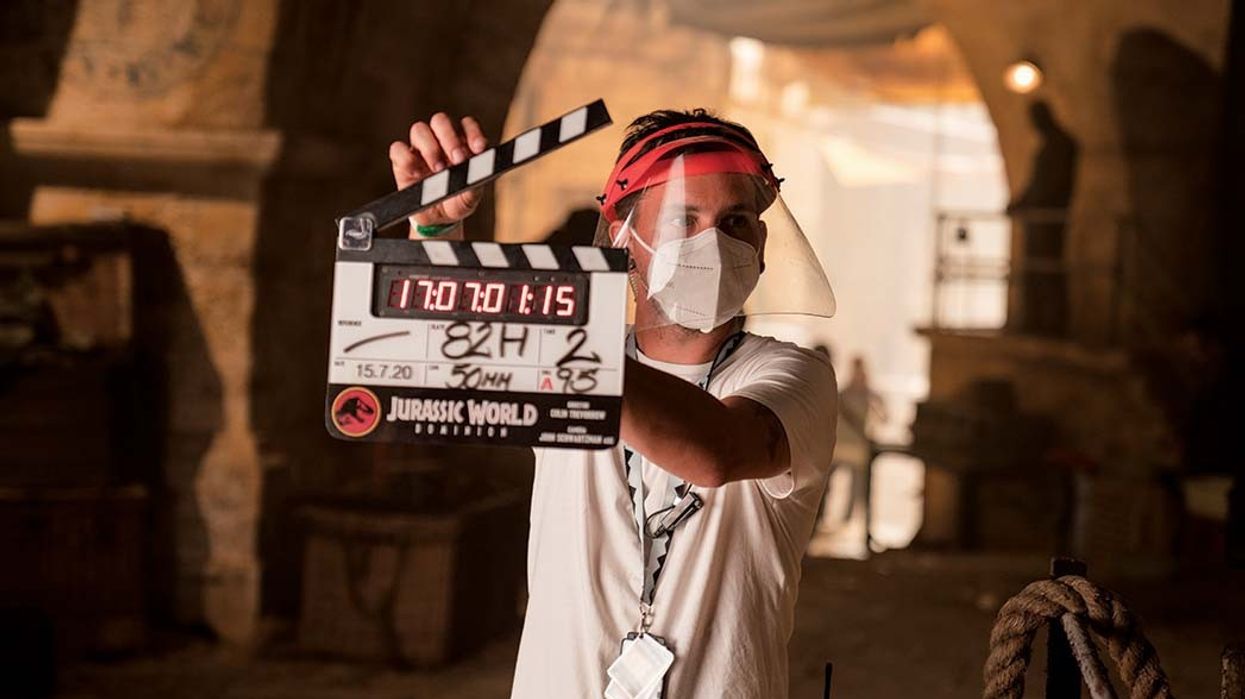How is the Industry Adapting to COVID-19 Safety Protocols?
Some people say it's chaotic, others say everyone is falling in line...

When it comes to enacting the new safety protocols on set, some studios and shows have been better than others. People all over Hollywood are looking for a way forward. but few are finding clear answers when it comes to how to shoot and how to stick to the rules.
"Logistics for production shoots are complicated to begin with. Add the extra layer of all the safety protocols and testing that has to be figured out and, yes, you're going to have some of it fall through the cracks," says California film commissioner Colleen Bell. "None of this is easy—but frankly, I give the industry a lot of credit for adapting so quickly."
Recently, The Hollywood Reporter went inside several productions to scout how they were doing acclimating to COVID-19.
Here's what they found...
"Some productions have required formal training sessions to ensure that everyone understands the new on-set protocols, while others simply email a PDF or PowerPoint or casually discuss the plan on Zoom."
That's how one line of the story reads, and I think it winds up being the most important. Everyone is handling things different ways, and that's a little scary. This is a precarious situation where various insurance policies and even shutdowns hang in the balance.
I'm excited to see people back to work. We all should be. Healthy production means a domino effect of jobs that will benefit the entire industry. Los Angeles has seen a 40% increase in film permit requests from July to August. That's amazing.
To keep this going, we need to make sure all sets are safe.

After the "Safe Way Forward" report, many people thought they would be in the clear, but this is a plan that relies on people doing the right thing. "Everyone's trying to figure it out at the same time, which is both great and a little terrifying," says John Skidmore, head of production at Jax Media.
He goes on to say, "The plans are constantly evolving and none of us are doctors, so we're just using the best advice we all have."
So what are the problems?
The article says, "A number of the inconsistencies have hinged on essential questions about protocol. For instance, how frequently should cast and crew be tested for COVID-19, and with what kind of test? How many sick days is a crewmember compensated for if they fall ill? How does a production determine who else on set needs to quarantine when someone tests positive? When is the infected individual cleared to return to set? How many positive tests can a production withstand before it should shut down? At least up until Monday, when a more industrywide agreement was finalized, you'd hear different answers, depending on whom you talked to, what project they were working on and which studio was footing the bill. Ideally the newly settled contract clears up some of the confusion on sets, but it will take time to determine the effectiveness of the new guidelines."
This ambiguity has wreaked havoc.
If you have different employers, they could be going by an entirely different set of guidelines than other people. Despite agreements and best common practices, it seems like every outfit has been left to fend for themselves.

Secret sources have talked about these issues.
"It's a slippery slope, because once certain protocols aren't taken seriously, it becomes, 'Well, I don't really have to be 6 feet away,'" says the source, who also felt that the designated COVID-19 monitor wasn't around as much as they should have been. "They were not monitoring. They were almost like a production assistant, where you're like, 'Hey, go get so-and-so another mask!' There was no one looking at me, saying, 'Stop what you're doing and put on a face shield.' And to me, that should have happened."
As we look for creative ways for everyone to be safe, we have to continue to work together and hold people accountable when they put others in danger.
But that's easier said than done.
Especially when your job might be at stake.
What do you think the best way forward is? How can Hollywood come together to continue production so jobs are not lost?
Let us know your ideas in the comments.











